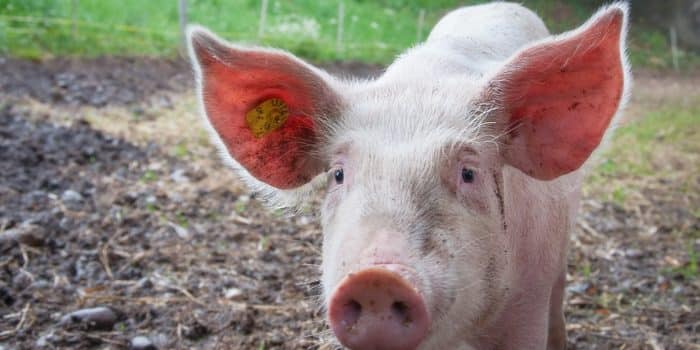Alexander Kalis and Brian Ruszczyk, two leading experts in the field, were recently interviewed by Cell Based News to discuss their involvement in the new smart protein fund. The interview delved into the details of the fund and its potential to revolutionize the industry through the use of advanced technologies and innovative approaches to protein production. The two experts provided valuable insights and perspectives on the exciting developments taking place in the field, making for a truly informative and engaging interview. Read the interview below.
London-based Milltrust Ventures and Ireland’s Earth First Food Ventures are launching a new $300M (£242M) Smart Protein Fund directed at funding alternative protein companies aiming to “disrupt and decarbonise” the food industry. We caught up with Alexander Kalis of Milltrust International and Brian Ruszczyk of Earth First Food Ventures to learn more about how the fund will evaluate opportunities, deploy capital, and more.
Can you tell us about your thesis around lab grown meat and cellular agriculture as an emerging opportunity for investment?
For Milltrust International and Earth First Food Ventures, partners in the Smart Protein Fund, our thesis is that lab-grown meat and cellular agriculture represent a significant investment opportunity, as these technologies have the potential to revolutionise the food industry. Lab-grown meat and cellular agriculture offer a number of advantages over traditional animal-based meat production, including environmental and health benefits, reduced water and land use, and improved animal welfare. Additionally, companies in this space are already beginning to receive significant venture capital investments, signaling the potential for substantial returns for early investors.
Why is now the right time for launching this new fund, and how soon do you plan to be deploying capital?
Food accounts for 28% of global greenhouse gas emissions, highlighting the need for meaningful change in the industry in order to address the climate emergency and growing consumer demand. The Smart Protein Fund should have launched years ago but the technology was not yet advanced enough. However, we have come a long way since then and technology has shifted from R&D to scaling. We are now seeing governments around the world beginning to pass legislation supporting the industry, such as the Biden administration’s $2 billion package for the synbio industry and companies like Upside Foods being granted GRAS qualification. This presents a great growth opportunity for investors, especially at a time when venture capital index is down 58% since its peak in October 2022, creating a great valuation reset and strong vintage year for our fund. We are looking to start deploying capital by the end of the first quarter 2023.
What are the main criteria that the Smart Protein Fund will be using to evaluate investment opportunities? What does your ideal portfolio company look like?
The Smart Protein Fund is focused on investing in companies that are working on innovative solutions in the areas of lab-grown meat, cellular agriculture, fermentation technologies, plant-based proteins and the infrastructure needed to scale the industry.
We look to invest in companies that have a clear competitive advantage in their respective field, have a robust and sustainable business model, and demonstrate strong potential for long-term growth. Our companies are led by amazing entrepreneurs that have a strong track record in building prior businesses and execution, and a clear path to profitability while demonstrating a strong commitment to sustainability and environmental stewardship.
Second, we are passionate about the product itself, including its taste, texture and price. We have a worldwide venture and agri-food team, from Singapore to San Francisco, that meets with new entrepreneurs and tries their products, which is a critical part of our selection criteria.
Third, our investments must have strong barriers to entry and protective intellectual property. For these reasons, we tend to prioritise B2B companies, which will make up 80% of our portfolio.
Finally, valuation will also be a crucial consideration and must be fair and commensurate with the risks.
The Smart Protein Fund will be a concentrated portfolio of around 10 to 30 high conviction investments. We do not advocate for a “spray and pray” strategy, which some of our competitors employ. Our ideal portfolio will comprise 50% fermentation companies (biomass, precision, gas), 15% cultivated technologies, 20% infrastructure, and 15% plant-based.
We are not limited to a specific region, but our initial focus will be the United States and Europe, with the potential for opportunistic investments in Asia and other parts of the world as the industry expands in these regions. Our portfolio will mainly consist of B and C rounds, accounting for up to 80%, while Seed and Series A rounds will make up the remaining 20%.
Can you share a little bit about the critical need these new food technologies will play in making positive environmental impact?
There is a critical need for new food technologies in order to make a positive environmental impact. These technologies can help reduce greenhouse gas emissions, reduce loss of biodiversity, and increase the efficiency of production. Additionally, these technologies can help create a more sustainable food system, and help to ensure the long-term health of our planet and its inhabitants. A recent study by BCG estimates that alternative proteins have the potential to eliminate 6.1 Gigatons of emissions by 2030.Plant-based proteins sales have struggled from a sales perspective in recent years.
Do you foresee lab grown meat having greater success in the market once they are available to consumers?
Yes, it is likely that lab-grown meat will have greater success in the market once they become available to consumers. Lab-grown meat offers a number of advantages over traditional plant-based proteins. Firstly, it has a more meat-like taste and texture that is more appealing to many consumers. Secondly, it is more sustainable than traditional animal-based proteins, as it does not require the use of land for farming or the use of resources to feed and raise animals. Finally, it has a much lower environmental impact than traditional animal-based proteins. Moreover, lab-grown meat is likely to be more appealing to the flexitarian consumer, as plant-based options have not been satisfactory enough to encourage regular and wide-spread adoption.
Why do you think the concept of food being made in a lab setting is controversial to many people? Do you see that as an opportunity?
The concept of lab-grown food is controversial to many people because it is seen as unnatural and not in line with traditional methods of food production. For some, this is seen as a threat to natural food sources, whilst for others it is seen as an opportunity for more sustainable and efficient food production. Ultimately, the success of lab-grown food will depend on its ability to meet consumer demands and to be produced in a way that is safe and sustainable.
What is something interesting you have learned about food technology, specifically around cell based food technology, since becoming involved in this space?
1) Imperfection: We have definitely realised that the quality of the product is not uniform across the industry, quality on taste and texture vary widely…many companies with mediocre product that are trying to raise US100’s million of capex for commercial facilities when their product isn’t ready for consumers, human consumption, nor viable commercially. We believe this is a huge mistake by founders trying to commercially scale imperfect product and can only do a disservice to the entire industry. By the same token we have found companies in the cultivated tech space that have phenomenal product–both taste and texture–we are investing there–selectively.
2) Hybrids: To be viable from a capex and unit economics standpoint direct to consumer, cultivated products will, by definition, need to be hybrid products: part plant-based and part cultivated, or fermentation –the cost of producing cultivated tech product (as it stands today) is simply too onerous and expensive for viable mass consumer products unless combined with extensive plant-based ingredients–thus creating delicious hybrid products that are not really cultivated per se.
3) Capex Intensive: The Cultivated space is by definition capex intensive and will require billions of dollars in capex to commercially scale–the brick and mortar costs of bioreactors and technology need to come down over the coming decade (and they will) to truly scale the cultivated industry.
Read the full interview here.
Contact us to see how you can get involved.




